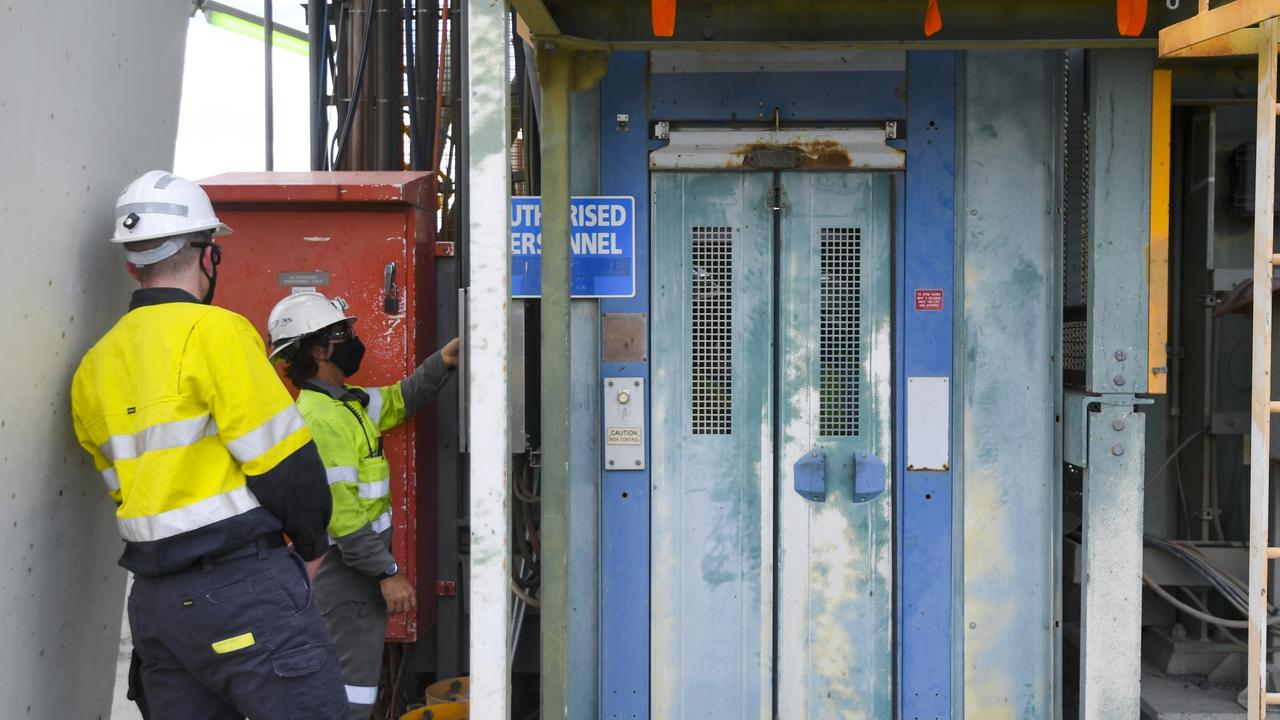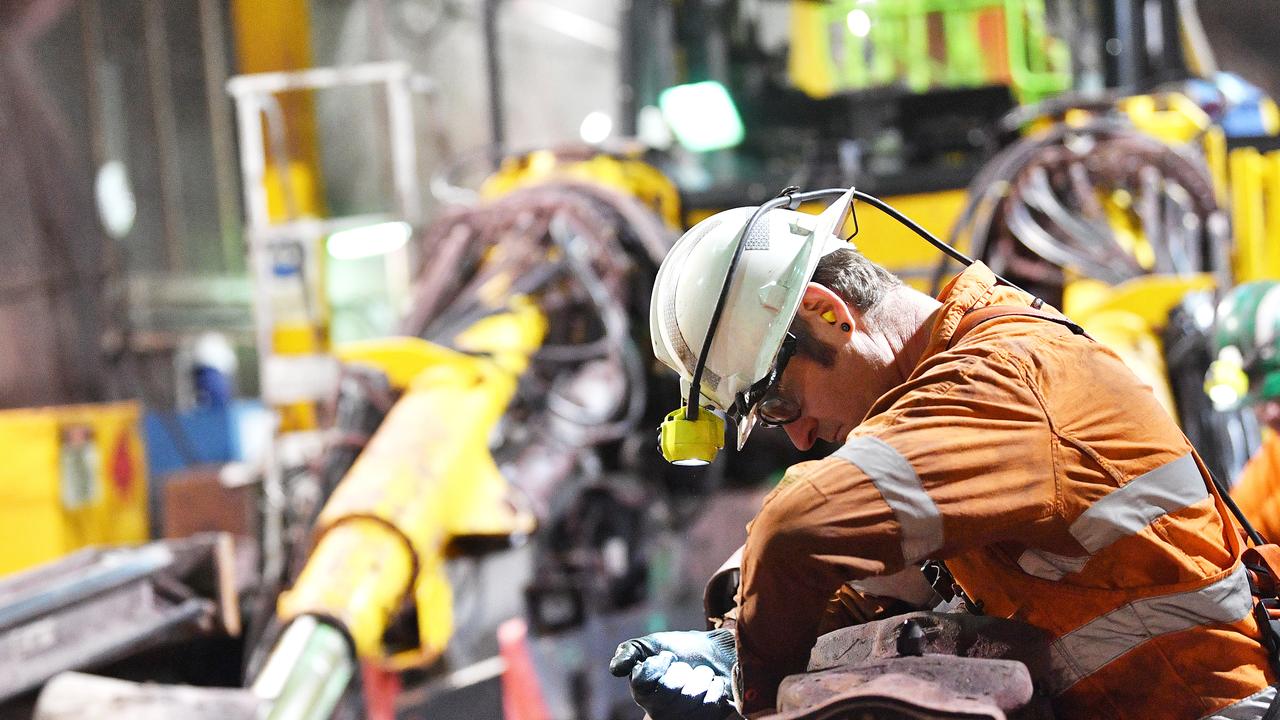Mine workers reject 16 per cent pay rise over cost of living concerns
Workers from Australia’s best paid industry have rejected a 16 per cent pay rise, saying it is not enough as day to day costs continue to rise.
Work
Don't miss out on the headlines from Work. Followed categories will be added to My News.
Workers from Australia’s best paid industry have rejected a 16 per cent pay rise over cost of living concerns.
Earlier this month, 460 workers at a NSW mining site were offered a salary increase of 16 per cent over the next four years, with five per cent of that set to kick in over the next year.
However, the overwhelming majority – 87 per cent of the workforce – voted against the suggested enterprise agreement.
ABS data released in February found that workers in the mining sector are the highest paid in Australia, raking in $2,656 per week for full-time workers, or $138,000 a year before tax.
That means, going off these averages, those 460 miners have essentially turned down a $22,000 pay increase.
The staff members, from South32 Illawarra Metallurgical Coal based in Appin near Wollongong, south of Sydney, are currently in negotiations with their employer to get themselves a better deal.
It comes as new research found that employers are lifting their salary budgets by an average of 20 per cent to account for inflation to retain staff.

South32 offered its Appin workers a five per cent wage rise for their first year under the new agreement as well as a one-off sign on bonus of an undisclosed amount, also payable in the initial 12 months.
They would then receive four per cent in the next year, then three per cent each year for the following two years.
In all, their wages were set to rise by 16 per cent over the course of the next four years.
And if the consumer price index (CPI) rose higher than wages, as it is at the moment, then South32 miners would receive a five per cent yearly boost instead of the designated four and three per cent rises.
However, this was rejected by 400 out of the 460 workers.

Workers reportedly declined the seemingly lucrative offer because the enterprise agreement didn’t address their daily cost of living pressures, nor did it factor in the enormous profits mining companies are making because of high coal prices, something that made them feel they were missing out.
In a statement to news.com.au, Mining and Energy Union southwest district vice president Bob Timbs said: “Our members at Appin are negotiating a new enterprise agreement in a context of high inflation and booming coal prices.
“The agreement needs to recognise surging cost of living and rising commodity prices.
‘‘We are working through a range of issues with South 32 and support our members’ efforts to protect and improve their conditions.’’
South32 said it was “disappointing” that their offer had been turned down and were still negotiating.
“We have taken a positive approach throughout the negotiation process, with the aim of reaching a new agreement that helps our operation to remain safe, reliable and sustainable through the commodity price cycle,” a spokesperson told news.com.au.

The news is timely; earlier this week, Sydney recruitment agency Robert Half found that employers were offering bigger and better salaries in the wake of Australia’s rampant inflation.
Robert Half’s 2022 Salary Guide, released this week, found that 96 per cent of business leaders are increasing their salary budget this financial year by an average of 20 per cent.
More than three quarters of Australia’s workforce – 78 per cent – are most likely going to quit and look for a job elsewhere if they don’t receive a wage rise this year.
An estimated 81 per cent of bosses are gearing up for their staff to ask for a pay rise.
Last week the NSW government floated the idea of paying teachers up to $130,000 a year to stop burnout and high turnover rates in the education sector.
On Wednesday, news.com.au reported on a Sydney food chain offering dishwashers a $5000 sign-on bonus as labour shortages bite.
Most jobs in the private sector are offering pay rises at the highest rate they have been in a decade, at 3.8 per cent for the June quarter, according to recent analysis.
Australia’s total wage growth is the highest it’s been since 2014, according to the Bureau of Statistics, while employer data from the Reserve Bank found that most bosses are expecting pay rises of greater than three per cent this year.
However, it’s not enough; factoring in inflation, wages have actually fallen 3.5 per cent in the 2021-22 financial year to 2011 levels.
Originally published as Mine workers reject 16 per cent pay rise over cost of living concerns







